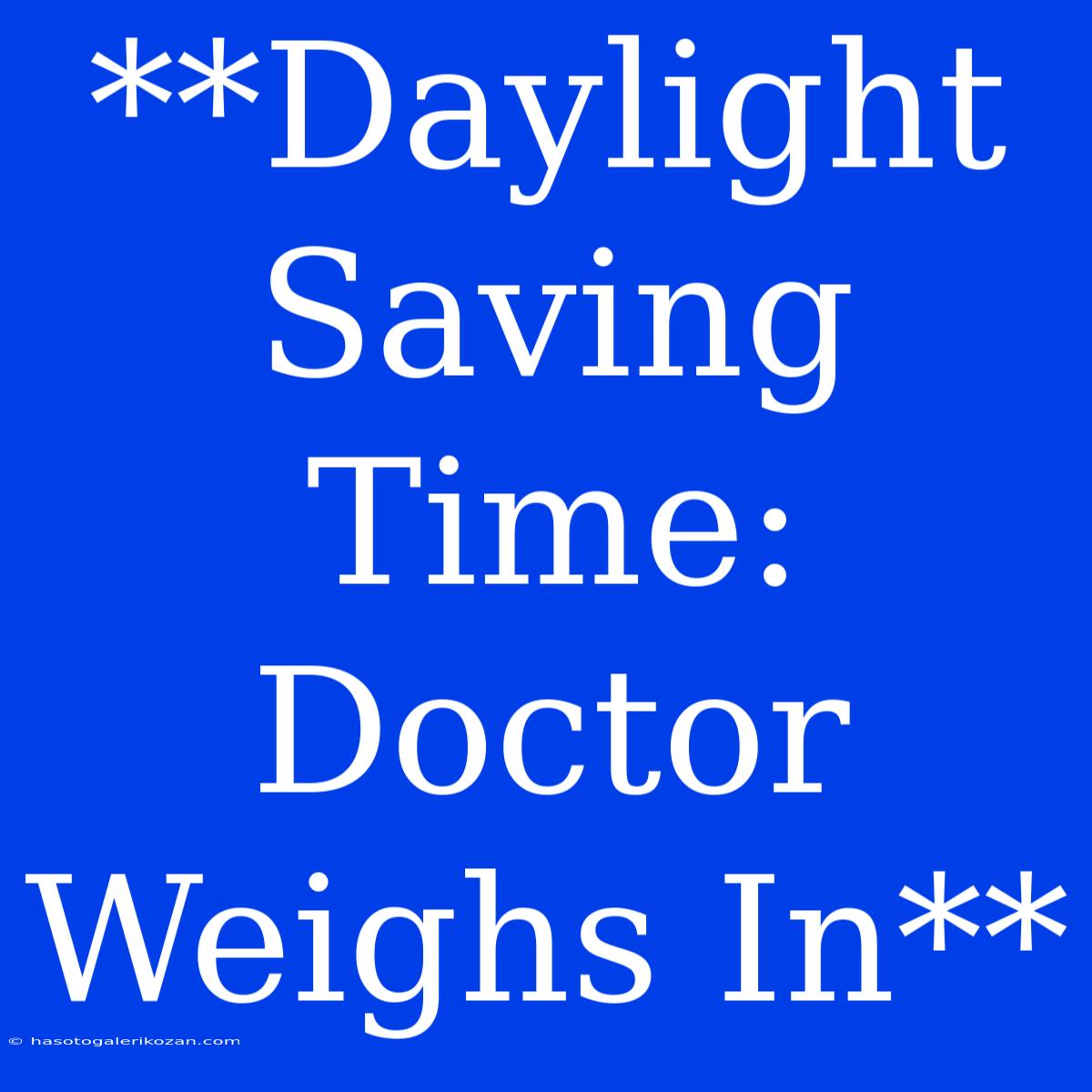Daylight Saving Time: Doctor Weighs In on Health Impacts
Daylight Saving Time (DST) is back, and with it comes the familiar cycle of adjusting our internal clocks. While the extra hour of daylight may seem like a boon for our mood and productivity, some experts believe the transition can take a toll on our health. We spoke with Dr. [Nama Dokter], a sleep specialist at [Nama Rumah Sakit], to understand the potential effects of DST on our well-being.
Sleep Disruption: The Major Concern
"The biggest concern with DST is the disruption to our natural sleep-wake cycle," says Dr. [Nama Dokter]. "Our bodies naturally produce melatonin, a hormone that regulates sleep, based on light exposure. When we abruptly shift the clock forward or backward, our bodies struggle to adjust, leading to sleep deprivation."
This sleep disruption can manifest in various ways:
- Difficulty Falling Asleep: The shift in clock time can throw off your body’s internal clock, making it harder to fall asleep at your usual bedtime.
- Fragmented Sleep: You may experience more frequent awakenings during the night, leading to less restful sleep.
- Morning Groggyness: Even if you manage to fall asleep on time, you might still feel groggy and unrested in the morning.
Beyond Sleep: Potential Health Risks
While sleep disruption is the primary concern, the impacts of DST can extend beyond sleep:
- Increased Risk of Accidents: Sleep deprivation can impair cognitive function, increasing the risk of accidents, particularly while driving.
- Elevated Blood Pressure: Studies have linked DST to higher blood pressure, potentially due to stress from sleep disruption.
- Mood Swings and Irritability: Sleep deprivation can contribute to mood swings, irritability, and increased feelings of anxiety.
Tips for Managing the Transition
Dr. [Nama Dokter] offers these tips for navigating the DST transition:
Before the Shift:
- Start Adjusting Gradually: A few days before the switch, start shifting your bedtime and wake-up time by 15 minutes each night.
- Avoid Caffeine and Alcohol: These substances can interfere with sleep and make it harder to adjust to the time change.
- Create a Relaxing Bedtime Routine: Establish a calming routine that signals your body it’s time to sleep.
During the Shift:
- Get Sunlight Exposure: Expose yourself to sunlight early in the morning to help reset your body clock.
- Take Naps (If Necessary): Short naps can help combat fatigue, but avoid long naps that can disrupt nighttime sleep.
- Be Patient: It takes time for your body to adjust to the new schedule. Be patient and allow yourself to adjust gradually.
In Conclusion
While Daylight Saving Time may seem like a minor inconvenience, it can have significant implications for our health. By understanding the potential risks and implementing strategies to mitigate the effects, we can make the transition smoother and minimize the impact on our well-being. It’s important to be mindful of our sleep patterns during DST and prioritize healthy sleep habits to maintain optimal health.
